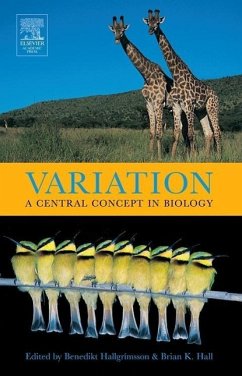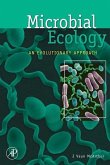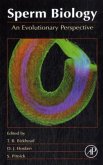Darwin's theory of evolution by natural selection was based on the observation that there is variation between individuals within the same species. This fundamental observation is a central concept in evolutionary biology. However, variation is only rarely treated directly. It has remained peripheral to the study of mechanisms of evolutionary change. The explosion of knowledge in genetics, developmental biology, and the ongoing synthesis of evolutionary and developmental biology has made it possible for us to study the factors that limit, enhance, or structure variation at the level of an animals' physical appearance and behavior. Knowledge of the significance of variability is crucial to this emerging synthesis. Variation situates the role of variability within this broad framework, bringing variation back to the center of the evolutionary stage.
Hinweis: Dieser Artikel kann nur an eine deutsche Lieferadresse ausgeliefert werden.
Hinweis: Dieser Artikel kann nur an eine deutsche Lieferadresse ausgeliefert werden.
"...Variation: A Central Concept in Biology, is sure to spark the interest of nearly all ecologists and evolutionary biologists...How does this variation arise? How do new variants evolve? What contrains variation? The answers are incomplete. However, the chapters of this book provide a glimpse at our current understanding of phenotypic variation." --James A. Fordyce, University of Tenessee, Department of Ecology and Evolutionary Biology, in ECOLOGY
"Variation is certainly a topic of central interest in evolutionary biology and this new book offers an unusually inclusive array of perspectives on the topic. I especially enjoyed the breadth of coverage. Novel features are found that one might not have expected in a book of this nature, such as structural, functional and developmental variation, as contrasted with the expected emphases on genetic variation, canalization and phenotypic plasticity, and their relation to life history evolution. Palmer's stimulating chapter on antisymmetry is particularly noteworthy for its originality. Another unusual treatment is Badyaev's focus on the role of stress in evolution, which is examined from a different perspective by Hoffmann and McKenzie. On the whole this is an assemblage of excellent chapters by many of the central figures in the fields covered and will be a welcome addition to my library." --David B. Wake, University of California, Berkeley, U.S.A.
"This comprehensive, diverse and stimulating volume is a must-read for anyone interested in development and evolution. Never has the critical subject of variation been so well treated in terms of how to analyze variation, how developmental processes induce and constrain its properties, and the complex relationships between genotypic, environmental and phenotypic variation. This is a tour-de-force treatment of a critical subject." --Daniel E. Lieberman, Harvard University, U.S.A.
"Where do genetic and phenotypic diversity come from and how are they are maintained? Do the same processes link the differences within species to the stable differences between species? These are the big questions about the diversity of life on Earth and Hallgrimsson and Hall's book provides the latest views from leading scientists of diversity and form." --Mark Pagel, University of Reading, England
"Variation is the basic material of evolution. At last we have a book that takes a modern approach to variation in all its forms-populational, developmental, genetic, morphological-and links it to the processes that generate the variation itself. This is not a collection of bland reviews, but a vital compendium of novel perspectives that begin to meld the new data of evo-devo with the accepted body of Modern Synthesis work. A must for any evolutionist's library. --Kevin Padian, University of California, Berkeley, U.S.A. Listed in NEW TITLES in BIOSCIENCE (April 2006)
"...chapters are authoritative and well written, and graduate students and scientists will find much here that is thought-provoking." --Carl D. Schlichting, Professor, Department of Ecology and Evolutionary Biology, University of Connecticut, in BIOSCIENCE
"Variation is certainly a topic of central interest in evolutionary biology and this new book offers an unusually inclusive array of perspectives on the topic. I especially enjoyed the breadth of coverage. Novel features are found that one might not have expected in a book of this nature, such as structural, functional and developmental variation, as contrasted with the expected emphases on genetic variation, canalization and phenotypic plasticity, and their relation to life history evolution. Palmer's stimulating chapter on antisymmetry is particularly noteworthy for its originality. Another unusual treatment is Badyaev's focus on the role of stress in evolution, which is examined from a different perspective by Hoffmann and McKenzie. On the whole this is an assemblage of excellent chapters by many of the central figures in the fields covered and will be a welcome addition to my library." --David B. Wake, University of California, Berkeley, U.S.A.
"This comprehensive, diverse and stimulating volume is a must-read for anyone interested in development and evolution. Never has the critical subject of variation been so well treated in terms of how to analyze variation, how developmental processes induce and constrain its properties, and the complex relationships between genotypic, environmental and phenotypic variation. This is a tour-de-force treatment of a critical subject." --Daniel E. Lieberman, Harvard University, U.S.A.
"Where do genetic and phenotypic diversity come from and how are they are maintained? Do the same processes link the differences within species to the stable differences between species? These are the big questions about the diversity of life on Earth and Hallgrimsson and Hall's book provides the latest views from leading scientists of diversity and form." --Mark Pagel, University of Reading, England
"Variation is the basic material of evolution. At last we have a book that takes a modern approach to variation in all its forms-populational, developmental, genetic, morphological-and links it to the processes that generate the variation itself. This is not a collection of bland reviews, but a vital compendium of novel perspectives that begin to meld the new data of evo-devo with the accepted body of Modern Synthesis work. A must for any evolutionist's library. --Kevin Padian, University of California, Berkeley, U.S.A. Listed in NEW TITLES in BIOSCIENCE (April 2006)
"...chapters are authoritative and well written, and graduate students and scientists will find much here that is thought-provoking." --Carl D. Schlichting, Professor, Department of Ecology and Evolutionary Biology, University of Connecticut, in BIOSCIENCE








